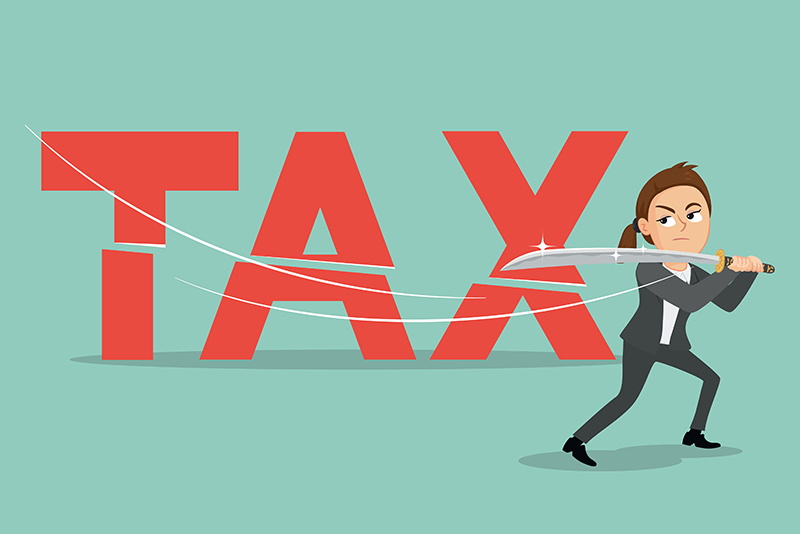Paying taxes is a necessary task for small business owners, but there are ways to minimize the amount you must turn over to the government. While you’ve certainly heard of tax deductions, and hopefully are taking advantage of some, there are some lesser-known deductions you may not be aware of.
Because many small business owners don’t take full advantage of the tax deductions they’re legally entitled to, I thought it would be a good idea to look at some creative deductions that apply to many small businesses.
A Closer Look at Business Tax Deductions
Small business owners who are busy tending to daily operations, customer development, marketing, sales, compliance issues, and the many other tasks involved with growing a business, may not have time to learn how to maximize their tax deductions. Doing so, however, can lower the amount of taxes you need to pay and increase your company’s bottom line.
Just to be clear, deductions, also known as tax write-offs, are qualified business expenses your business incurs that you can deduct on your tax return. Qualified business expenses are those that the IRS considers to be “necessary and ordinary.” Typically, “ordinary” business expenses are those that are common throughout the industry and incurred by most owners of similar businesses. “Necessary” expenses are those that a business owner must pay to keep the company operational. Any qualified business expense is tax-deductible.
Some Deductions You May Not Have Considered
Most entrepreneurs are aware of allowable tax deductions such as startup costs, wages and payroll taxes, home office expenses, the rent you pay for business space, and the cost of business and office supplies. But there are some less obvious deductions you might not have considered.
Below are ten commonly overlooked tax deductions every small business should be reviewing:
- Health Insurance – According to SCORE, a nonprofit with a goal of assisting small business owners, health insurance is one of the most overlooked deductions for sole proprietors. If you’re self-employed and pay for medical, dental, or qualified long-term care insurance for yourself, your spouse, and/or family members, you may be eligible for a deduction on your personal tax return. Those who meet certain criteria can deduct up to 100% of their health insurance premiums, a move that could significantly reduce taxable income.
- Freelancer or Independent Contractor Fees – Most small business owners consider it a good thing to be busy enough to bring in a freelancer or independent contractor to help get the work done. If you find yourself in that position, remember you can deduct their fees as a business expense. Be aware, however, that you’ll need to supply an IRS Form 1099-NEC to any contractor you’ve paid more than $600 during any given tax year.
- Education Related to Your Business – If you want to take classes to help you prepare for a new career, the costs of doing so will not qualify as business tax deductions. Any costs for education that directly benefit your current business or make you better qualified to run the business, however, can be written off. Education costs might include subscriptions to professional publications, memberships in trade associations, books related to your industry, classes to improve applicable skills, transportation expenses to and from classes, and seminars and webinars.
- Legal and Professional Help – Any fees from lawyers, accountants, tax preparers, company formation firms, or bookkeepers that are necessary to form and run your business are tax deductible.
- Taxes and Licenses – The IRS allows entrepreneurs to deduct certain taxes and licensing fees if they’re directly related to the trade or business. Examples of possible deductions include state income taxes, sales tax, payroll taxes, personal property taxes, business property taxes, business licenses and permits, excise taxes, and fuel taxes.
- Business Meals and Entertainment – If you take a prospective client to lunch or invite a few current clients to participate in a golf outing, you normally can deduct up to 50% of the cost. Some expenses, such as food for an office holiday party, may be 100% deductible.
- Car Expenses – If you use your personal vehicle for business purposes, you can deduct related expenses on your tax return. Keep in mind that you can only deduct the expenses directly related to business, not those that apply to personal purposes. There are a couple of ways to claim your car expenses. You can use the standard mileage method, for which you track the miles you drive for business purposes and use the current IRS table of standard mileage rate (67 cents per mile for the 2024 tax year) to figure out your deduction. Or you can use the actual expenses method, which allows you to track expenses such as car insurance, fuel, registration fees, and auto loan interest, then multiply the total by the amount of your car use that was business related. Once you choose a method for a particular vehicle, you’ll have to stick with it for the applicable tax year.
- Interest and Bank Fees – If you’re paying interest on a small-business loan or a business credit card, those fees are usually fully tax deductible if they apply only to business expenses. Note that a loan must be from a traditional lender, such as a bank, not from a friend or family member. Any maintenance fees on a business bank account also are fully deductible.
- Advertising and Marketing Costs – If you decide to set up a table and give away free samples of your product at a community event, hire someone to design a logo for your business, buy business cards, or pay for advertising on TikTok, those expenses can be claimed as deductions. Just remember that you’ll need to be able to prove any such expenses are directly related to your business.
- Phone and Internet Expenses – If you pay for a cell phone or internet connection that’s used for your business, you can deduct some or all those expenses. The entire cost of a cell phone or internet service that’s used exclusively for business purposes can be deducted, or a percentage of a phone or internet service used for both business and personal purposes.
While these are some commonly overlooked tax deductions, they are not the only ones. Be sure to ask your accountant or tax preparer to help you identify all the deductions you’re entitled to, or do some research so you’re able to ask about deductions that may apply to you.
Keeping Track of Your Business Deductions
Many entrepreneurs have trouble keeping track of all their deductible business expenses because they wait until the end of the tax year to try to track down and organize them. Although it can seem burdensome, keeping careful records of all expenses as you incur them makes it much easier to claim the deductions you’re entitled to when it’s time to pay taxes.
If you’re not a DIY person when it comes to bookkeeping, you may benefit from hiring an experienced professional to help keep track of all expenses. Knowing exactly what you’ve spent can enable you to claim all the appropriate deductions and significantly reduce your taxable income.
A Word to the Wise
Tax laws change frequently and significantly, and it’s extremely important to keep up with those changes so you can take advantage of regulations that might benefit your business while making sure you remain in compliance with the IRS.
The Tax Cuts and Jobs Act (TCJA) that took effect on Jan. 1, 2018 was the biggest tax overhaul in 30 years, impacting both individuals and business owners. Many of the tax cuts implemented under the TCJA are set to expire at the end of 2025, however, which is likely to affect individual and business tax rates. It’s always advisable to seek professional advice when it comes to paying taxes for your small business, as without it you run the risk of making errors that could cause problems with the IRS.





